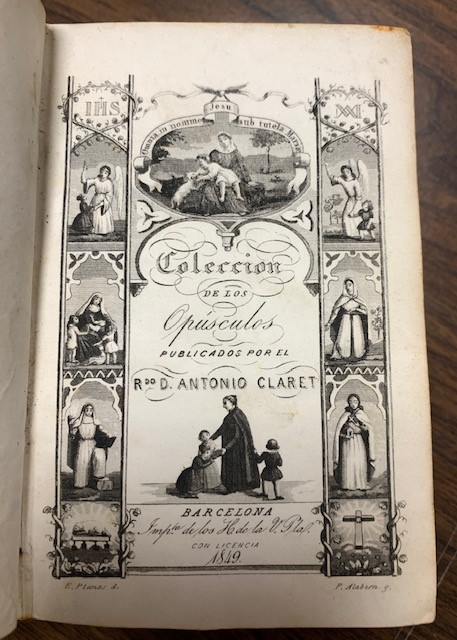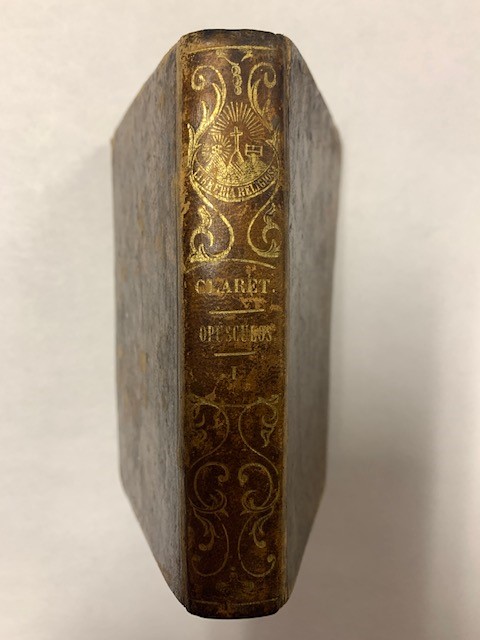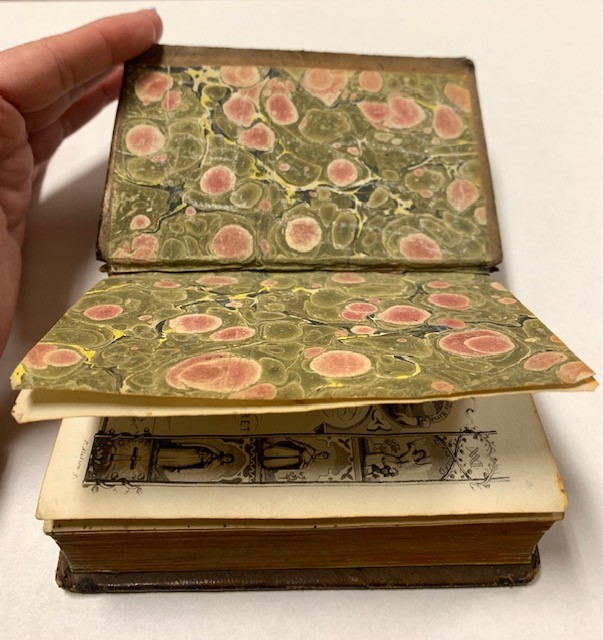Conducting research in the Claretian Missionaries Archive, I noticed two tall bookcases filled with hundreds of old books. Just the colors and leather bindings suggested these volumes dated back to the nineteenth century, maybe earlier. Now curious, I randomly pulled out a small book, a bit larger than a deck of playing cards. The soft brown leather cover gave way to endpapers richly marbled in olive, chalky red, and spatters of yellow. What was this in my hand?
The title page revealed I had a collection of Opúsculos, short religious writings by Reverendo Antonio Claret, published 1849 in Barcelona. Miniatures framed the page, showing Jesus and Mary, angels, and female saints. At the center-bottom a black-clad Father Claret ministers to children. These detailed scenes of piety and paternal guidance reflect the volume’s contents: Avisos útiles a varias clases. Claret aimed at specific classes of readers: fathers, married women, widows, and children. He gently warned his nineteenth-century readers about the evils of dances, laziness, sensuality, and malos libros (bad books). In this examplary good book, Claret addressed his readers conversationally, paternally, albeit with a preachy tone. Several volumes of opúsculos (treatises) followed. Claret wrote over one hundred books. As the filled book shelves show, Saint Anthony Mary Claret certainly had a following in his time.



Deborah E. Kanter wrote Chicago Cátolico: Making Catholic Parishes Mexican (University of Illinois Press, 2020). Her current research focuses on the Claretian Missionaries in the US and the creation of a national Latino ministry, 1902-2020.
